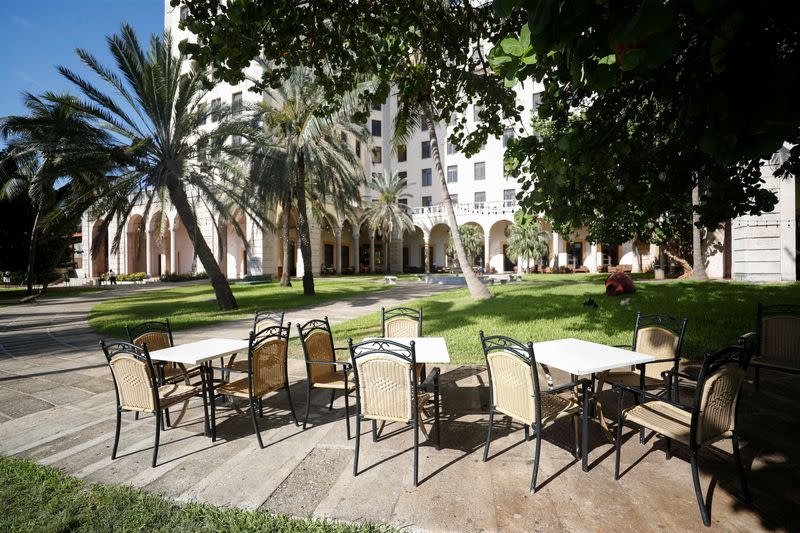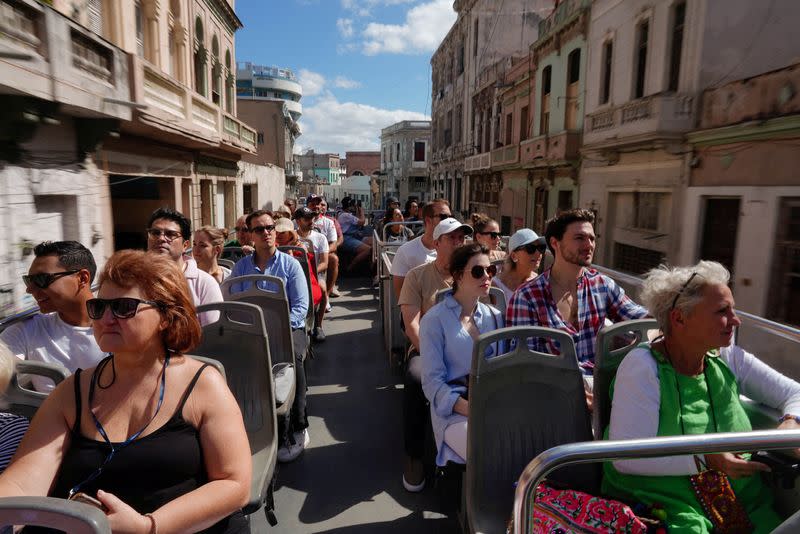Cuba woos Russians, Chinese to revive ailing tourist sector
By Dave Sherwood and Nelson Acosta
HAVANA (Reuters) - Russian tourist Serguei Boyaryshnic wandered in awe among the pastel-colored buildings and cobblestone streets of Old Havana on a weekday morning, his family in tow.
"We had heard a lot about Cuba. Our countries have been friends for years," said the 36-year-old Moscow resident, who had joined a small tour group. "We love everything about it."
Cuba has recently begun offering perks to entice visitors like Boyaryshnic from allied countries such as Russia and China as it struggles to revive a stagnant tourism sector still struggling to recover from the pandemic.
That has meant more and sometimes direct flights from Russia and China, the elimination of visa requirements for Chinese visitors and Cuba's recent decision to accept Russia's Mir payment cards, one of only a handful of countries to join Moscow's alternative to Visa and Mastercard.
That strategy has paid early dividends.
More than 66,000 Russians visited the Caribbean island in the first three months of the year, state-run Cuban media reported, double that of the same period in 2023. The Russian visitors are one of Cuba's few tourism bright spots, however.
Stiff U.S. sanctions imposed by former president Donald Trump contributed to a sharp reduction in U.S. visitors and arrivals from many European countries have also dropped off this year, state data shows.
Cuba's bet on distant countries may not make up for the overall visitor decline, said Paolo Spadoni, an associate professor at Augusta University and expert on Cuban tourism. A trip from Beijing, with layovers, for example, can require 24 hours or more of travel.
"It's a long shot," said Spadoni. "(Chinese and Russian visitors) may provide some relief in the short term, but it's very unlikely that they will make up for the lost contingent of European and American visitors."
That means Cuba is unlikely to meet its goal of attracting 3.2 million visitors in 2024, Spadoni said. He estimates the island will receive between 2.6 million and 2.7 million tourists this year.
On a recent weekday morning, Old Havana - a U.N. World Heritage site and one of Latin America's most famed tourist hotspots - was eerily quiet.
Signs of an ailing industry are everywhere. Hotel lobbies and restaurants, once popular with foreigners, are all but barren. White-sand beaches see few international visitors. And at Havana's airport, taxi drivers complain they often wait all day for a single client.
For Migdalia Gonzalez, a 55-year-old street vendor in Old Havana, the situation couldn't be worse.
She has noticed more Russian and Chinese tourists than in years past, but neither were fans of the empanada pastries she sells.
"Tourist activity here has hit rock bottom," she said.
(Reporting by Nelson Acosta and Dave Sherwood, additional reporting by Anett Rios, Alien Fernandez and Rod Nickel)



